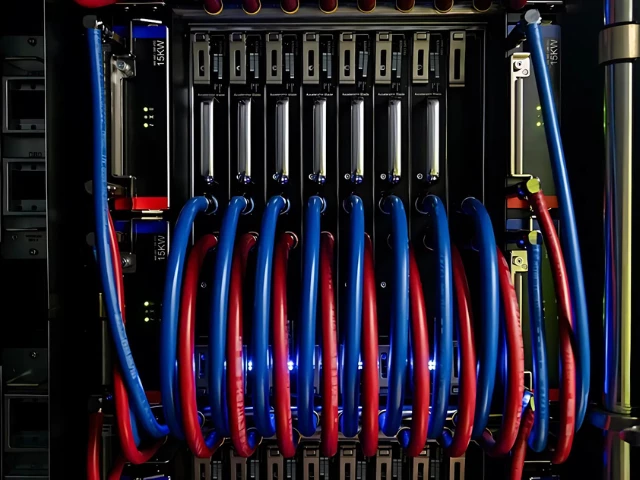A supercomputer, which is now the most powerful in the UK, has been fully activated in Bristol.
The Isambard-AI machine, a major leap forward in the country’s technological capabilities, was launched by Technology Secretary Peter Kyle, as part of the government’s fresh push towards expanding artificial intelligence (AI) resources, as reported by BBC.
Kyle officially “flicked the switch” on the machine during an announcement that also unveiled new AI-related initiatives. The Isambard-AI supercomputer will join a similar machine in Cambridge, called Dawn, as part of the UK’s AI Research Resource, which will serve as a vital tool for public sector projects.
The supercomputers are expected to aid in tackling critical issues like reducing NHS waiting lists and developing innovative solutions for climate change, despite the known high energy consumption of AI systems.
Alongside these announcements, the government revealed plans for substantial investments in AI Growth Zones across Scotland and Wales, aiming to boost regional economies and expand AI’s reach nationwide.
The Isambard-AI machine had already been involved in a medical project earlier this year, contributing to vaccine development. Now fully operational, it is expected to support a broad range of public sector initiatives.
As its name implies, Isambard-AI is a supercomputer designed to complete tasks at an unprecedented speed, utilising thousands of processing units to handle larger datasets faster than traditional computers. This extraordinary capability will enhance the UK’s public AI computing infrastructure.
The government has announced a training initiative aimed at preparing a million students in AI and providing broad economic training for 7.5 million individuals over the coming years.
Isambard-AI, using more than 5,400 Nvidia GH200 Grace Hopper Superchips, was developed by the University of Bristol with public funding, as reported by BBC.
It ranks 11th in the world in terms of processing power, according to the most recent Top 500 list of supercomputers. In contrast, Dawn at the University of Cambridge employs over 1,000 Intel chips.
David Hogan, Nvidia’s European vice president, described Isambard-AI as a “truly transformational machine” but stressed that it is just the beginning of a much broader AI strategy.
To bolster these efforts, researchers, academics, and tech leaders, including Google DeepMind’s Pushmeet Kohli and the Royal Society’s Alison Noble, are collaborating on a national AI strategy set to be unveiled later this year.
The UK government believes that further investment in supercomputers will help position the country as a leader in AI development, challenging the global race for dominance in the sector.
This move is also aimed at enhancing the UK’s competitiveness in the field, with global companies eager to secure the best talent and resources in the AI space.






1733130350-0/Untitled-design-(76)1733130350-0-640x480.webp)